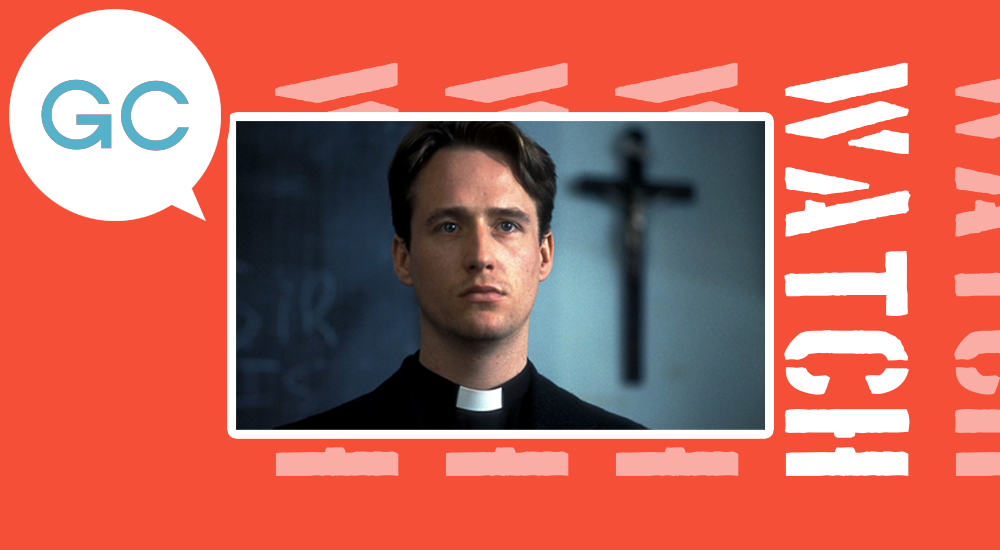priestthe 1994 film, written by Jimmy McGovern and directed by Antonia Bird, meant a lot to me as a young adult trying to get out of Roman Catholicism and into a place where I could come to terms with being gay. I owned the film on VHS but lost track of it as technology advanced. I tried to rewatch it for years, until last weekend, to no avail.
When I finally found a copy of it, my initial excitement was tempered by nervousness: What if it was one of those things that once had deep meaning for me, and I would be bitterly disappointed if I watched it, even though I’d been living for 25 years since I last watched it?
Fortunately, I saw the film with more distance from the time in my life when I was grappling with these issues so intensely, and I discovered themes and flaws in places I hadn’t discovered them in the ’90s. It turns out, however, that in the 2020s I was still deeply moved by priest.
It was also fascinating to discover faces and names of people who were not so well known at the time but who later went on to achieve great things in film and television.
What is “Priest” about?
Father Greg Pilkington (Linus Roache) arrives at his new parish in Liverpool as a somewhat pompous young Catholic priest determined to turn his community around. When he discovers that Father Matthew Thomas, with whom he now lives, is in a long-term relationship with their housekeeper, he becomes critical and moralising about the responsibility of Catholic clergy to honour their vows of chastity.
In the day-to-day running of his inner-city ministry, Father Pilkington is confronted with realities he has never faced before. During confession, a young girl named Lisa confesses that her father is abusing her. When her father later confirms – and defends – this abuse and makes it clear that he has no intention of stopping, Greg Pilkington finds himself in a seemingly impossible situation: the sanctity of confession means that Catholic priests cannot tell anyone what they hear, but Pilkington knows that by remaining silent, he is allowing the abuse to continue.
As if that wasn’t enough to give the venerable reverend a crisis of faith, we soon learn that Greg is gay, and he begins an affair with a man he later sees again. But when they are caught by the police in a car, his indiscretion ends up on the front page of the local newspaper.
Father Greg Pilkington has reached his crisis point.
Pilkington breaks down, believing that his soul is also sinful. His inability to protect Lisa (thanks to the seal of confession) only increases his sense of hopelessness and his crisis of faith.
Can Lisa escape her abusive father? Can Greg ever face his parishioners again? These questions are answered in the film in a cathartic, devastating finale.
What is the verdict?
I’m usually careful not to read other critics’ opinions on a film or book I’m about to review, but I’ve seen the existing reviews so many times over the years that I can’t forget what they say. The critics are divided.
There are people like me who find priest a powerful and striking portrayal of a crisis of faith, the hypocrisy and terrible behavior of some believers, and the almost threatening power of the Church.
Others think priest is too harsh in his judgment, is overly moralizing and expresses his opinions too bluntly.
Oh, and there were people who thought the film was blasphemous, like the Catholic Church in Ireland, the Catholic League in the US and the American Life League, and they tried to get it banned. But those are opinions I don’t have much time for. I have even less time for the reaction of those who sent bomb threats to venues where the film was shown.
With regard to the more reasonable critics, I admit that it makes sense priest When Greg’s colleague Father Thomas gives an impassioned speech to his congregation after Greg’s revelation, it could easily be seen as hypocritical. But in the 1990s, in the very Catholic Archdiocese of Liverpool, where I grew up and where this film is set, his message was radical and daring.
I can understand why people who did not grow up as homosexuals in a deeply religious environment might find this film a bit much or not understand the depth of Father Pilkington’s fear, powerlessness and self-loathing.
But for those of us whose religions made it significantly more difficult to deal with a core aspect of ourselves, priest is a difficult and terribly familiar story, but one that is, at least to some extent, cathartic and healing.
You could say it was a relief.

